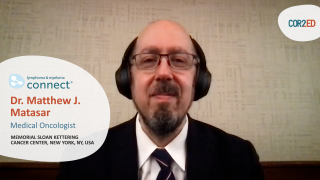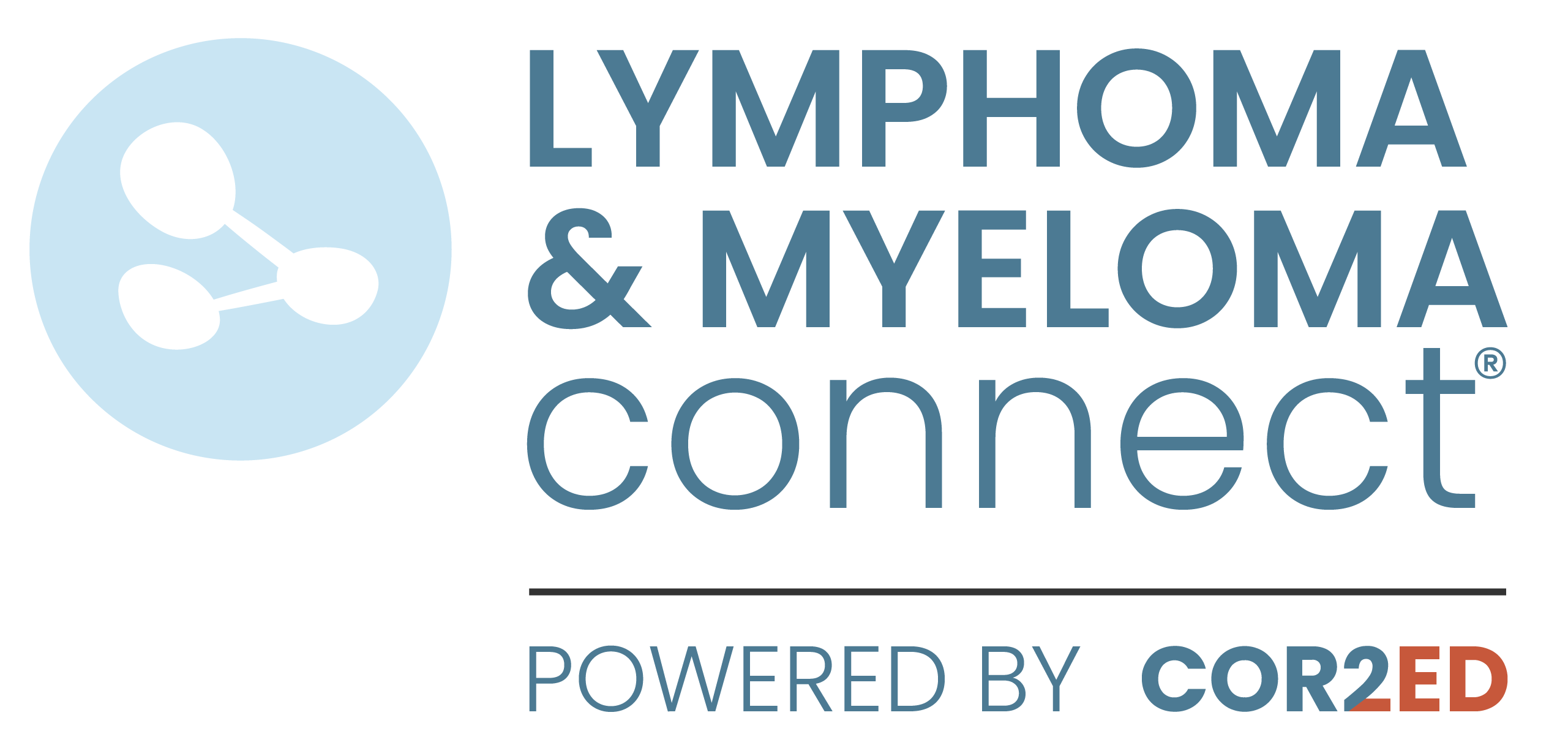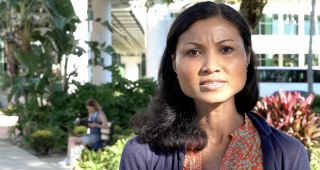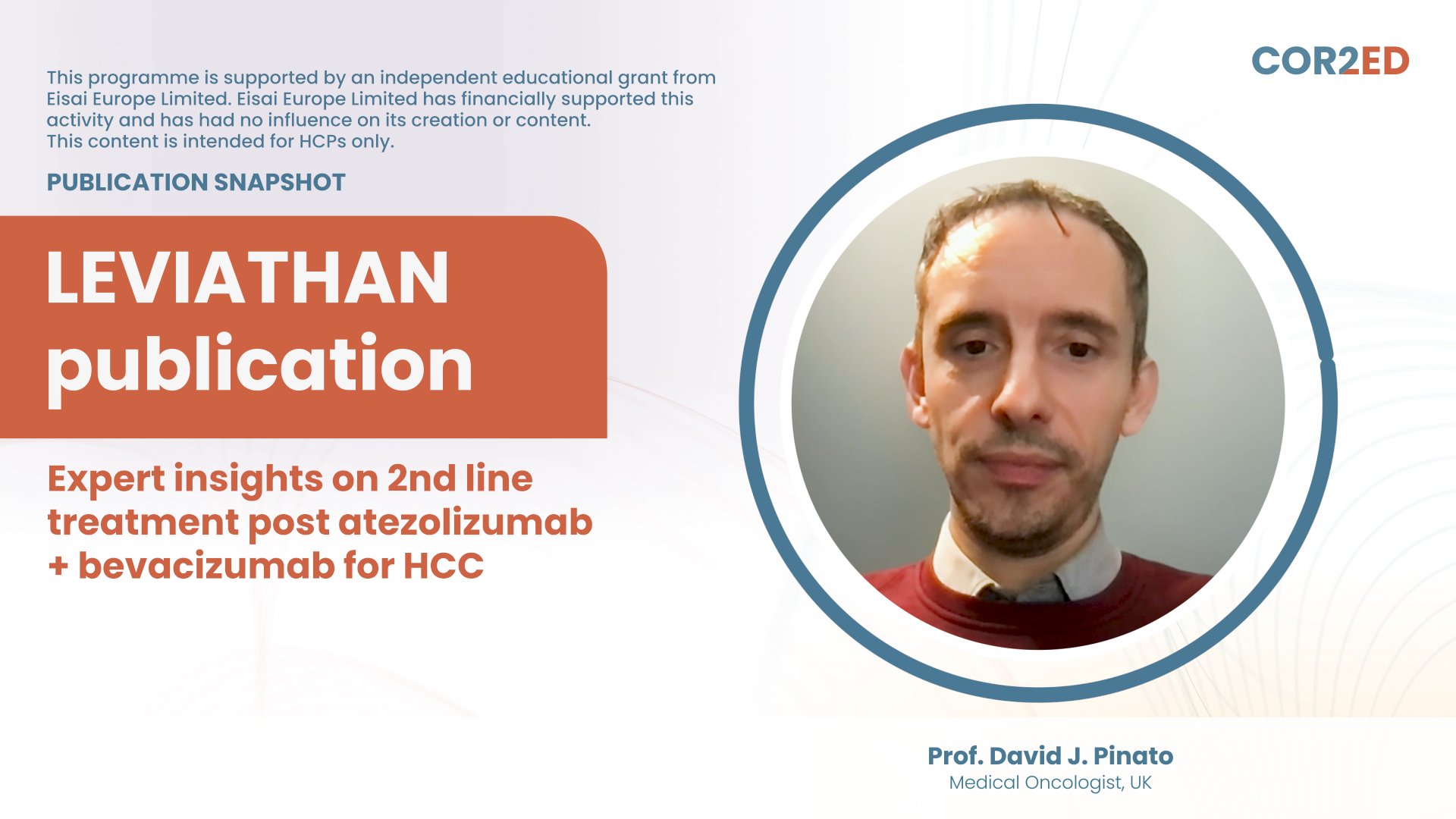Hi, I'm Dr. Matt Matasar. I'm the chief of blood disorders at the Rutgers Cancer Institute in New Jersey. And I'm here at ASH 2022 to share some important updates with you.
I'm going to talk to you about three important advances that we saw reported here at ASH, the first of which was indeed the first abstract presented, the number one piece in the plenary session. And this is the TRIANGLE study reported by the European Mantle Cell Network. This is an important study, a three-armed prospective randomised trial, comparing different strategies in the treatment of young fit patients with newly diagnosed Mantle cell lymphoma. Arm one was what they would consider standard of care, which is alternating cycles of R-CHOP and R-DHAP, and a consolidated auto transplant in first remission. The second arm is that same approach, but incorporating ibrutinib, adding it to the R-CHOP cycles and adding in two years of post-transplant maintenance ibrutinib. In the third arm is the investigational arm in which again R-CHOP plus ibrutinib alternates with R-DHAP. No auto transplant is given. Patients transition directly to two years of ibrutinib maintenance.
While we saw differences in improvement in the incorporation of ibrutinib on top of chemotherapy when patients were receiving an auto transplant, this is not necessarily surprising. More importantly to us, however, when you compare the investigational arm, R-CHOP plus ibrutinib, alternating with R-DHAP, no transplant ibrutinib maintenance, it was actually numerically superior in an important endpoint such as progression-free survival compared to the standard of care arm of R-CHOP, R-DHAP and an auto transplant, suggesting that it may be the case when we see the full data, that we may be able to move away from a standard of care auto transplant in first remission. Replacing that with a more tolerable and less toxic two-year ibrutinib maintenance strategy.
The second abstract I'll now bring to your attention is the ALPINE study. This is a head-to-head clinical trial of zanubrutinib in second generation BTK inhibitor to ibrutinib in patients with CLL that are BTK naive. We've long believed that zanubrutinib is a slightly more tolerable treatment than ibrutinib with lower rates of key toxicities, such as atrial fibrillation and bleeding. But it is clear from the ALPINE data, with important progress in clinically meaningful endpoints like progression-free survival, that zanubrutinib is indeed a better treatment for such patients, than ibrutinib in the head-to-head fashion. Both arms did well. We know that both are effective drugs, but this does indeed establish zanubrutinib of as a standard of care treatment in patients with CLL.
Lastly, I think the sleeper study of the Congress was the updated results from the REMoDL-B study. This was a prior conducted randomised trial in patients with newly diagnosed diffuse
large B-cell lymphoma to receive either standard of care R-CHOP or R-CHOP plus bortezomib. The hypothesis was that bortezomib as an NF-κB sort of pathway inhibitor should be differentially active in activated B-cell subtype diffuse large B-cell lymphoma.
Prior data cuts showed the study to be negative. However, with these updated results at this Congress, combined with a reclassification of patients according to molecular classification as opposed to the more old-fashioned and less accurate immunochemical signature, we see that in patients with true activated B-cell by sequencing or a second subtype called molecular high grade - again by sequencing, these patients derived significant benefit from the inclusion of bortezomib, with improvements in progression-free and overall survival compared to R-CHOP alone. We'll definitely want to see these full data, but it establishes R-CHOP plus bortezomib as a potential new standard of care for such patients.
So, what's my takeaway from ASH this year? From these three abstracts, I think that we're seeing tremendous progress in the treatment of patients with B-cell lymphomas. We're seeing treatments that are more effective, zanubrutinib beating ibrutinib head-to-head. Improvements in first-line therapy for activated B-cell molecular high-grade DLBCL with the inclusion of bortezomib. As well as finding ways to give effective and less toxic treatments, sparing patients auto transplant potentially with the inclusion of ibrutinib in first-line therapy mantle cell lymphoma.
Again, I'm Dr. Matt Matasar from the Rutgers Cancer in New Jersey, and thanks for your attention.



 Downloadable
Downloadable 




 6 MIN
6 MIN
 Dec 2025
Dec 2025 







